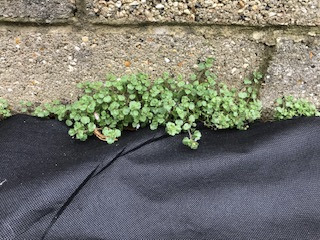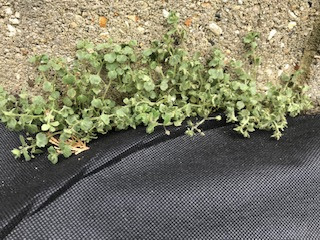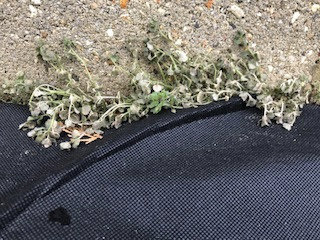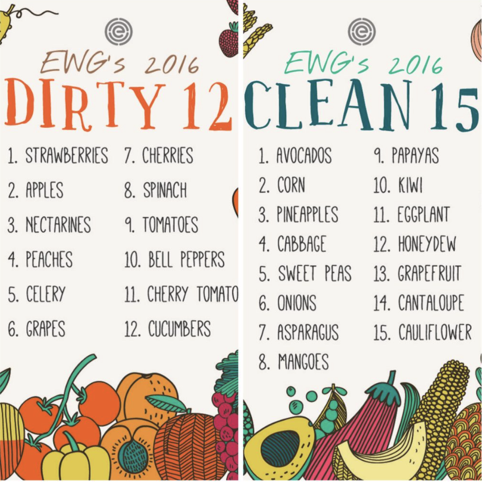Which chemical kills 93% of endanagered species…
The answer to the email title is the ubiquitous herbicide, glyphosate.
According to the Environmental Protection Agency (EPA) in the USA, over 93 percent of endangered species and 96 percent of their habitats are likely to be harmed by glyphosate.

In its report, EPA found that glyphosate, which affects non-farm environments predominantly through field runoff and spray drift, is “moderately to highly toxic to fish, highly to very highly toxic to aquatic invertebrates, moderately toxic to mammals, and slightly toxic to birds on an acute exposure basis.”
Chronic exposure causes “a variety of growth and reproductive effects” to land and aquatic animals as well as plants.
Well, speaking as a land based mammal that is more than a little concerning.
Over in Germany, German Environment Minister Svenja Schulze has the right idea.
“What harms insects also harms people”
Wise words and thankfully she was speaking about the banning of glyphosate (branded as Roundup by Monsanto) in Germany from 2023.
And she has a good point.
For many, many years now the world of functional medicine/nutrition has been concerned that the weed killer might be exceptionally bad for humans too.
Glyphosate stops key protein production in plants (phenylalanine, tryptophan, and tyrosine) that leads to its death via a faulty working enzyme (EPSP-Synthase – an enzyme not present in humans)
Monsanto also acknowledges that glyphosate kills bacteria (more on that later, think about your gut!)
But it also appears to kill off insects & bugs.
Something Monsanto isn’t too keen to acknowledge.
And as the minister rightly says “What harms insects also harms people”
And the courts in the USA agree.
Dewayne Johnson recently sued Monsanto after he developed terminal non-Hodgkins lymphoma following exposure to glyphosate.
And he was awarded $78 million.
https://time.com/5460793/
Bayer recently agreed to pay out $10.5 billion to settle 100,000 cancer case claims.

https://www.politico.com/news/
But what does it actually do to us?
Well, honestly it really isn’t clear.
Glyphosate is very much on-trend at the moment within the functional medicine community.
There is a lot of opinion and theory presented as facts, often by 1 or 2 people who are interviewed again and again on different websites and podcasts.
They often use big scientific words and they are not challenged by the interviewer at all.
So let’s be clear about facts and theory.
What we do know is, the manufacturer has confirmed it kills bacteria.
So, they spray foods with glyphosate, we eat the foods (covered in glyphosate).
So the question is does glyphosate kills our gut bacteria?
For your gut microbiome, this could be very very bad.
It certainly makes sense it could (that’s theory), and we are seeing an epidemic of gut issues and immune-related problems are skyrocketing.
How that’s proven I don’t know and who’ll pay for the research ?!?
But for now, I’ll assume it’s not good for my bacteria & whenever I can I take my veggies organic.
So how does glyphosate stop the plant’s EPSP synthase enzyme working?
Well, glyphosate is very very similar to the most simple amino acid we have: Glycine (my favourite amino acid, like EVER).

See it’s just Glycine with a phosate added on.
So the plants incorporate glyphosate in place of glycine.
Enzymes work by creating an “active site” that catalyzes a chemical reaction
For EPSP-Synthase the active site is a small “pocket” created by glycine.
Glycine’s small size makes the space for the biochemical magic to happen.
However, if a cell accidentally uses a glyphosate molecule instead of glycine, that extra “phosate” group fills up the pocket and blocks the active site.
Without an active site, the reaction cannot happen. It’s like someone changing the lock on your door; the key just won’t fit.
When this happens to the EPSP-Synthase enzyme, the plant (or bacteria or fungi) cannot make the amino acids it needs to function and the organism dies.
This raises a key question: if cells really use glyphosate like glycine, could it substitute for our glycine?
Well, again we don’t “know” exactly but glycine is so crucial to our bodies I wouldn’t want to risk it.
Glycine is used as 33% of our collagen, it’s key for detoxification, it’s a calming neurotransmitter, it makes bile and heme. I could go on (and on) but this stuff is only for the members of the Core Concept in Chiropractic Nutrition course.
Suffice to say given the epidemic levels of hypermobility and Ehlers-Danlos syndrome (EDS) we are seeing, adding glyphosate into your collagen instead of glycine, could be a very real issue.
So what’s the alternative for us keen gardeners?
Acetic acid at 10-20%.
Check out my test below, each photo is one day apart. I added a little salt and washing up liquid, then sprayed.



Is it as good as glyphosate?
No.
It doesn’t go to the roots and it didn’t kill everything perfectly as glyphosate does, but then it doesn’t bugger up my gut microbiome or my collagen either.
You can buy 20% acetic acid here:
https://www.biolindo.co.uk/
Note it will make your garden smell like a chip shop for a few hours.
ACTIONS TO TAKE
– Encourage patients to follow the dirty dozen, clean 15 rule to make organic shopping more affordable.

– You can detox glyphosate by taking charcoal (see told you it was great) to bind it in the gut after the liver has processed it.

